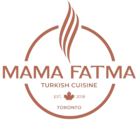It is highly likely that Turkish coffee was introduced to the Ottoman Empire by traveling merchants around the 16th century. This Turkish coffee, made by boiling finely ground coffee, can use any type of coffee bean, with arabica being the most preferred. The grounds are not filtered out before serving. You can grind the coffee yourself or buy pre-ground coffee from different stores.
Blog Contents
ToggleWhy is Turkish Coffee So Important in Turkish Culture?
Turkish coffee is a small but rich cup of coffee, usually served at gatherings with loved ones. Made with finely ground coffee brewed in a cezve (which is a Turkish coffee pot) or ibrik on the stovetop, it is unique as it is not filtered.
Served in porcelain cups called finjans (Turkish coffee cups), it is best enjoyed slowly to allow the grounds to settle. Turkish coffee serves not just as a drink but also as a communal ritual that fosters cultural exchange, social connections, and shared beliefs in the context of socialization. Its significance in social bonding dates back to the establishment of the initial coffeehouses in Istanbul, characterized by their distinctive ambience and décor. The Turkish coffee also offers a distinctive and cherished experience, prepared with finely ground coffee beans, brewed in a traditional Turkish coffee pot known as a cezve, and often ground using a traditional Turkish coffee grinder.
The tradition embodies values of hospitality, camaraderie, sophistication, and amusement, touching every aspect of life greatly.

Features that Distinguish Turkish Coffee from Other Types of Coffee
It can be said that Turkish coffee has certain differences from other types of coffee. Turkish coffee and regular coffee exhibit distinct differences across various aspects. First things first, Turkish coffee is ground into an extremely fine powder, unlike the coarser grinds typically used for drip or espresso coffee. Brewing Turkish coffee involves boiling finely ground beans with water in a Turkish coffee pot, without filtration, resulting in grounds settling at the bottom. Conversely, regular coffee is brewed through methods such as drip brewing, French press, or espresso, where water passes through filtered grounds. Turkish coffee is served traditionally in small cups (finjan) without milk or cream, offering a strong, concentrated flavour, while regular coffee is often served in larger cups and can be customized with various additives. The preparation of Turkish coffee may be slower due to the finely ground beans and the careful brewing process. In terms of taste and texture, Turkish coffee presents a unique, unfiltered texture with sediment, delivering a rich, full-bodied flavour.
Culturally, Turkish coffee holds significant importance in regions like the Middle East and Turkey, tied to traditional ceremonies and hospitality, whereas regular coffee lacks such cultural significance in specific regions despite its global popularity. As can be seen, Turkish coffee’s cultural significance and ritualistic serving style make it a cherished tradition in regions like the Middle East and Turkey, enhancing its distinction from regular coffee.
How to Make Turkish Coffee?
To make Turkish coffee, you will be needing some essential ingredients and specific tools. You can start with cold filtered water and Turkish coffee, which is finely ground and readily available at Middle Eastern or Mediterranean supermarkets. You will also be needing a “cezve”, a special wide-bottomed pot typically made of copper, and Turkish coffee cups for serving. With these ingredients and tools on hand, you’re ready to start the process of brewing authentic Turkish coffee.
For preparing Turkish coffee, you must start by combining water, finely grounded Turkish coffee grounds, and optional sugar or spices in a cezve (which is a Turkish coffee pot). Next, you must stir the mixture gently and heat over medium-low heat until it begins to boil, which usually takes about 3 to 4 minutes. During this process, you must be sure to keep an eye on the pot to prevent boiling over.
Once the Turkish coffee starts to boil and rise, remove it from the heat. If you desire foam over the coffee, spoon some out of the cezve and into your Turkish coffee cup.
After the coffee settles, return it to the stove and let it boil again. Repeat this process three more times.
Once you have completed the boiling process four times, pour the coffee into your Turkish coffee cup. Serve with a glass of cold water and optional Turkish delight or another sweet treat on the side. Enjoy your freshly brewed Turkish coffee!
We are Waiting for Coffee Lovers to Mama Fatma for a New Coffee Journey
Situated centrally in Canada, “Mama Fatma” emerges as a prominent destination for Turkish cuisine, inviting diners on a gastronomic voyage through Anatolia’s heart. Beyond merely a dining spot, this esteemed Turkish restaurant embodies an immersive tribute to Turkey’s culinary legacy, set within a halal dining environment.
At Mama Fatma, the menu unfolds as a dynamic display of Turkish delights. In the restaurant’s menu, each dish is carefully prepared with reverence for traditional recipes and premium halal ingredients. From the hearty spices of Southeastern kebabs to the subtle mezes originating from the Aegean coast, the restaurant’s culinary offerings mirror Turkey’s wealthy and diverse gastronomic heritage.
Discover the tradition of Turkish coffee and savour the authentic tastes of Turkish cuisine at Mama Fatma! With two convenient locations in Mississauga (6970 Financial Drive, 905-542-8181) our inviting spaces welcome you to experience Turkish hospitality. Get to know our cosy atmosphere and let the beautiful aroma of freshly brewed Turkish coffee activate your senses. These Turkish coffees are expertly prepared by our baristas who use Turkish coffee pots specifically. Cater to the perfect coffee moment as you explore our diverse menu. Our menu offers a number of Turkish delights, such as traditional breakfast options and savoury dishes. Treat yourself to an unforgettable culinary journey at Mama Fatma.
Visit mamafatma.com for more information and make an authentic Turkish dining experience that will delight your taste buds and leave you longing for more. You can also easily make reservations through the site’s link.


Eating Turkish Food the Healthy Way: A Guide to Mediterranean Wellness
When you think of healthy eating, your mind often jumps to salads or steamed fish. But Turkish cuisine, at its core, is one of the world’s original wellness diets. Rooted

The History Behind Your Favorite Turkish Dishes
Every bite of turkish dishes is a journey through time. From the smoky spices of Anatolia to the refined elegance of the Ottoman palaces, the food tells a story of

How Turkish Food Brings Families Together
In the heart of Turkish culture, food is far more than sustenance; it is the strongest glue holding families and communities together. The tradition of the sofra (the communal dining

How to Plan a Turkish Dinner Night at Home
There’s nothing quite as impressive and inviting as hosting a dinner party centered around Turkish cuisine. It’s a culture built on generosity, abundance, and the art of shared eating—a tradition

How to Enjoy Turkish Food Without Alcohol: The Art of Authentic Pairing
For many diners in the vibrant city of Toronto, the question of what to drink often defaults to wine or beer. But when sitting down to a truly authentic Turkish

Why Turkish Food Works for Every Season
Living in Toronto, Ontario, means experiencing the full spectrum of Canadian weather—from scorching summer humidity to the deep chill of winter. This drastic seasonal shift requires a flexible diet, and


